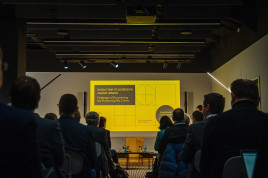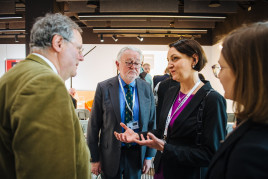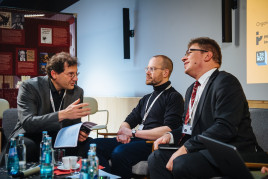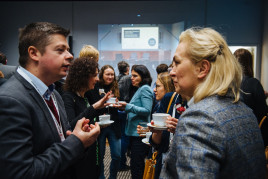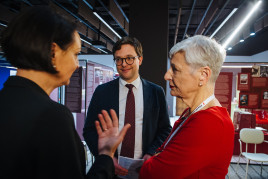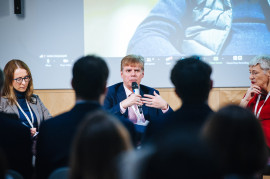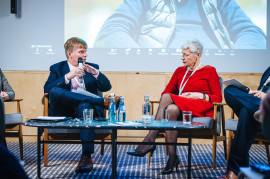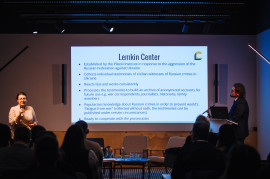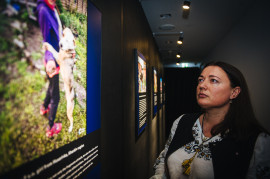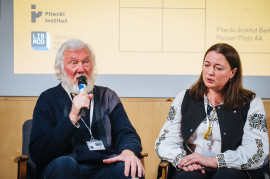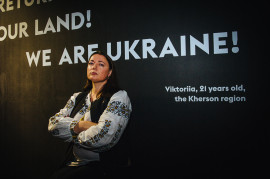Conference Russia’s War of Aggression Against Ukraine. Challenges of Documenting and Prosecuting War Crimes - Instytut Pileckiego
conference
01.02.2023 (Wed) 10:45
Conference Russia’s War of Aggression Against Ukraine. Challenges of Documenting and Prosecuting War Crimes
The first day of the international conference 'Russia's War of Aggression Against Ukraine. Challenges of Documenting and Prosecuting War Crimes'.
Russia’s War Against Ukraine: The Soviet Legacy and the Wellsprings of Russian Policy
We are spreading difficult knowledge!
The history of Russia contains an unbroken series of armed and humanitarian aggressions against countries that did nothing to provoke or justify the commencement of hostilities and occupation. Each Russian aggression results in vast numbers of war crimes and crimes against humanity. The Holodomor in Ukraine (in the 1930s) was an artificial famine orchestrated in line with the predatory politics of the Soviet Union. It is estimated that as many as 10,000,000 Ukrainians could have died as a result of the Great Famine. The Second World War brought Russian terror against Poland, with mass murders of the Polish intelligentsia and officers and with mass deportations deep into the USSR, which for thousands of Poles, including children – this due to the inhumane transport and then living conditions – meant death from freezing, starvation, exhaustion caused by slave labor, lack of access to medical aid or any other form of civilized life. After the Second World War, Poles were still being murdered and deported to Russia, from where the majority never returned simply because they perished. An example of a mass and purposeful extermination of Poles in the Polish territory after the end of the hostilities is the Augustów Roundup, during which more than 7,000 residents of Augustów and the vicinity were interned. Almost 600 Poles never returned home and their graves remain undiscovered.
The director of the Pilecki Institute, Prof. Magdalena Gawin, opened the conference, emphasizing that “Russian aggressive war has its allies: hypocrisy, complacency, selfishness and ignorance".
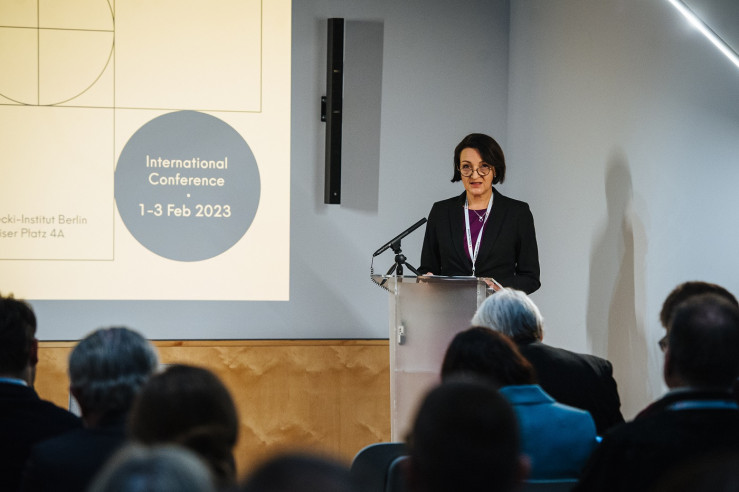
“The wars of aggression waged by Russia are characterized by the criminality of methods and the subsequent impunity" - said prof. Magdalena Gawin.
(…) In the 1950s, Raphael Lemkin put forward a thesis that the Holodomor in Ukraine bears all the hallmarks of genocide. For long decades, Lemkin’s opinion was questioned in the West as “too controversial”, “suggesting a dangerous parallel between the Soviet Communism and Nazism”, or “revisionist”. These attitudes prevailed for a long time also in Germany, which has only recently recognized the Holodomor as genocide. Thus the contemporary Russian aggression is changing not only our present, but also our assessment of the past. (…) The links in the chain of Russian crimes and impunity must be broken" - added Gawin.
In his opening remarks, Ralf Fücks from Zentrum Liberale Moderne, the co-organizer of the conference, reminded about the need to support Ukraine’s military action in its defense against Russian aggression.
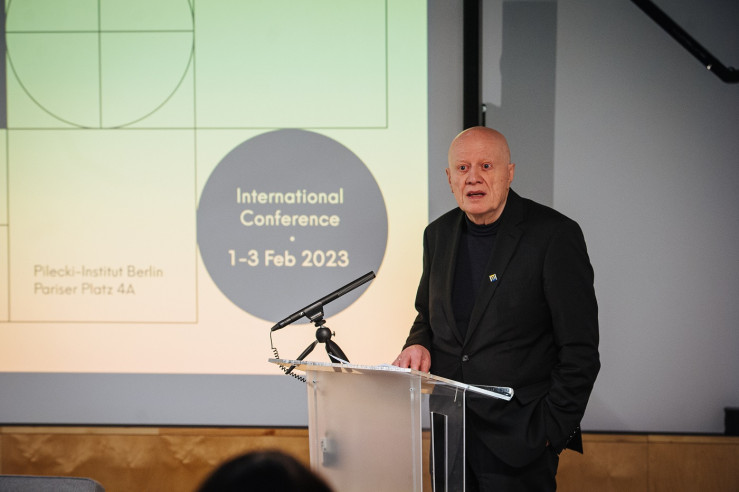
“Russia’s war of aggression is (…) a massive attack against the European security order, against international law, and against all liberal aspirations in central Eastern Europe,” said Ralf Fücks, co-founder of Zentrum Liberale Moderne.
"Compared to our Eastern policy in the previous era, Germany has moved dramatically over the last year, from our special relationship with Russia and no delivery of weapons to Ukraine at all, to one of the biggest suppliers of military equipment for the Ukrainian army, including the last decision on Leopard battle tanks. From a domestic perspective, this is a dramatic shift that should be acknowledged. But compared to the massivity of Russia’s war of destruction and Ukraine’s desperate struggle to survive, Germany’s policy still seems to follow the pattern of too little, too late" - emphasized Ralf Fücks.
During the first presentation, Prof. Mark Kramer, director of Cold War Studies at Harvard University, recalled Russia’s (the Soviet Union’s) armed aggression against among others the Hungarian nation or Afghanistan – this in the context of civilian victims of the Russian invasion.
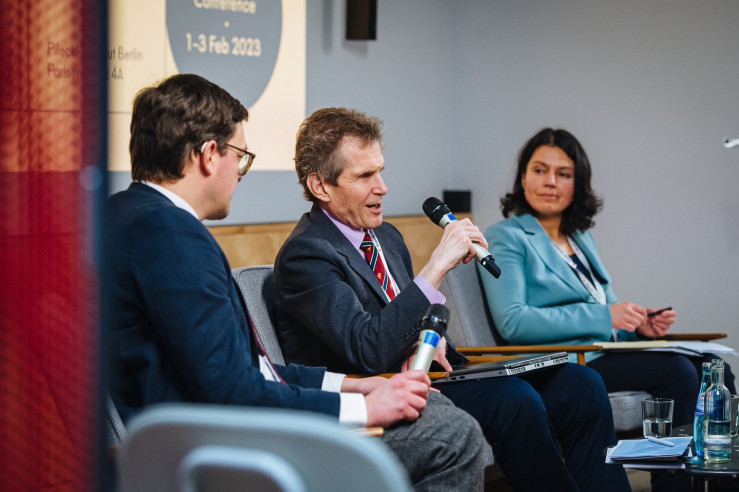
Prof. Mark Kramer emphasized that Russia is fully aware of the conflict between its activities and the rules of international law, which it is supposed to observe not only due to moral and ethical imperatives, but also because it signed various conventions and treaties, and the primacy of these international agreements over domestic law is laid down in Article 15 Paragraph 4 of the Russian Constitution.
Concluding his presentation, Prof. Mark Kramer stated that “The brutality of Russia’s military operations stemmed not so much from a lack of awareness of the norms of international humanitarian law as from a lack of willingness to comply with them, regardless of the country’s supposed commitment to uphold them. Policymakers in Moscow may have pledged their acceptance of humanitarian principles by signing and ratifying international treaties, but when faced with the exigencies of armed conflict they simply ignored their commitments and gave the Russian army a free hand. Russian military commanders, for their part, were in many instances aware of the basic norms of international humanitarian law, but they had no desire or incentive to abide by them. The Russian case underscores what can happen when officials at all levels of political and military power care nothing about international humanitarian law and when other factors that might induce compliance (e.g., supranational enforcement bodies) are also absent.”
Iryna Solonenko, director of the “Ukraine Programme” in the Berlin think-tank Zentrum Liberale Moderne, remarked in one of her comments that the security mechanisms developed by the world after the Second World War cannot prevent Russia’s aggression.
The first thematic session (following introduction by Mark Kramer and comments from Iryna Solonenko) was devoted to “War and Violence in the Post-Soviet Space” and featured presentations from Agnieszka Bieńczyk-Missala and Ian Garner.
Agnieszka Bieńczyk-Missala, professor at the Faculty of Political Science and International Studies of the University of Warsaw, cited official UN statistics on civilian deaths. She described them as heavily under-reported (the number of civilian casualties is officially estimated at 66,000, but it is impossible to determine the number of victims from Russian-occupied territories or victims buried in graves that have not been discovered). Prof. Bieńczyk-Missala emphasized that attacks on civilian targets are purposeful: statistics show that it is mainly schools, hospitals and energy infrastructure that come under shelling and bombardment. In the context of difficulties in disseminating knowledge that contradicts the political will of some part of the world, the speaker cited the example of Jan Karski.
The presentation of Ian Garner, an expert on Russian war and propaganda, was devoted to “Putin’s Youth”. Garner described an informed and efficient machine of indoctrination of the young generation, where the process of upbringing and education begins in early childhood. Currently the number of young Russians who were brought up in the cult of war and approval for Russian imperialist ambitions is estimated at 25% of Russian youth.
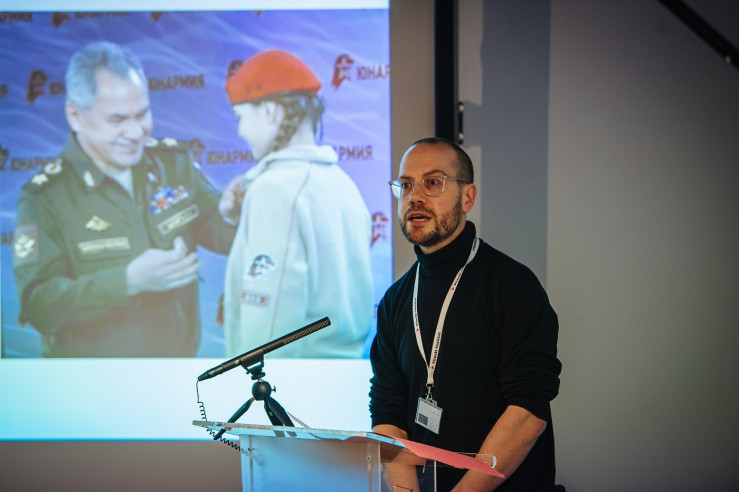
Next William Schabas, professor of international law at Middlesex University London, pointed to an extremely important issue: at the beginning of March 2022, in its first resolution dealing with the situation in Ukraine, the Human Rights Council – an institution that promotes respect for human rights and fundamental freedoms – talked about the war of aggression for the first time in its history. After Prof. Schabas’ presentation, both political and practical approach to responsibility for war crimes – past, present and future – was discussed.
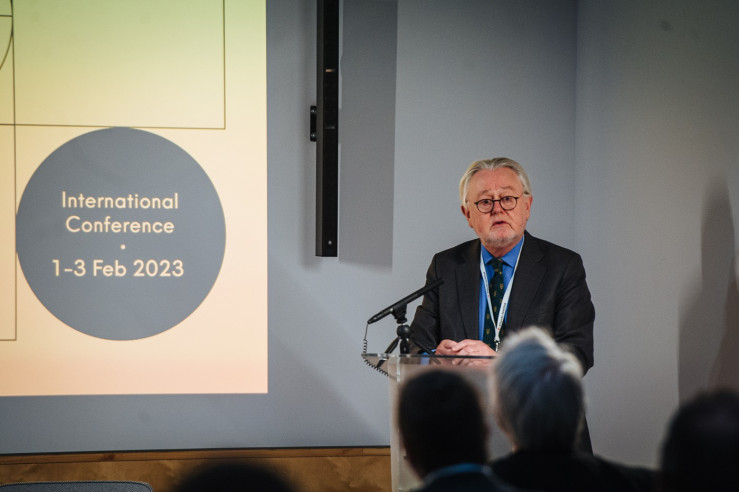
An important voice in the debate came from Marieluise Beck, a German politician specializing in Eastern and South-East Europe, who admitted that her opinion on armed support for Ukraine was influenced by her stay in the war-torn and bombarded Bosnia in 1993. Mrs. Beck strongly emphasized that protecting those who cannot protect themselves is the greatest manifestation of responsibility, and that refusing the attacked their right to protection is highly unethical.
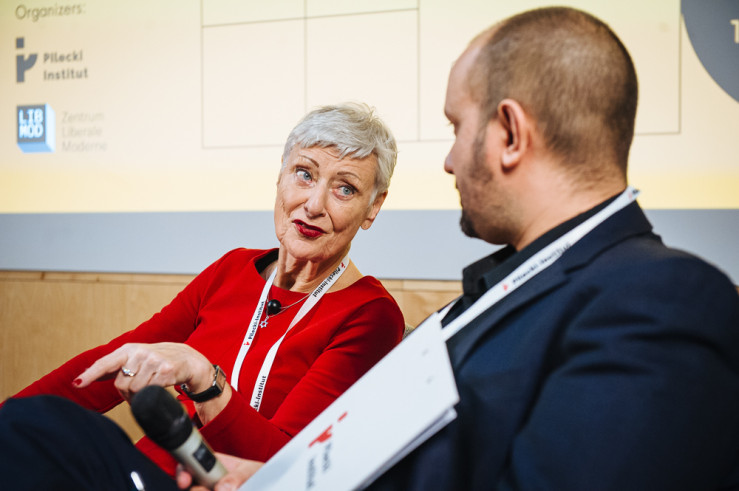
Dr. Anton Korynevych, an ambassador-at-large in the Ministry of Foreign Affairs of Ukraine, pointed among others to two indications that Russia has genocidal intentions as regards Ukrainians: instigating the destruction of the Ukrainian nation and forced deportation of Ukrainian children deep into Russia. Each of these activities bears the hallmarks of the crime of genocide.
Another speaker, David Allen Schlaefer – the Senior Advisor for War Crimes and Accountability in Ukraine in the Office for Global Criminal Justice at the US Department of State – discussed possible scenarios for international involvement in helping Ukraine, bringing the perpetrators to justice and the validity of Russian reparations for Ukraine.
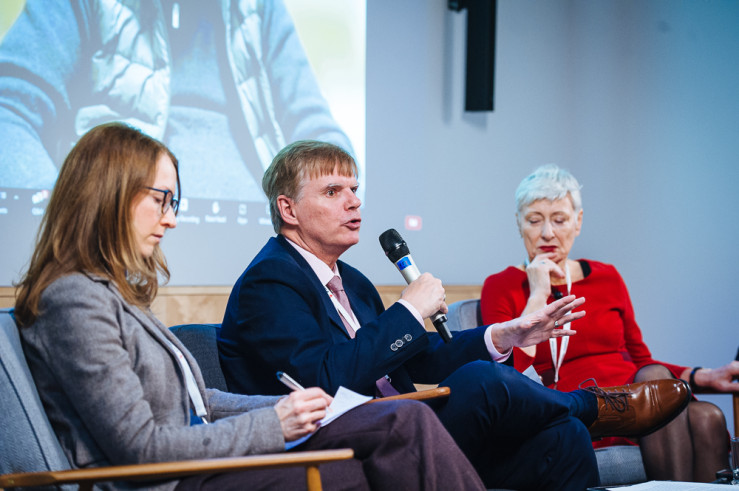
The first day of the Conference concluded with a presentation of the Raphael Lemkin Center for Documenting Russian Crimes in Ukraine, which from the first days of the war has been collecting testimonies of witnesses and victims of the Russian aggression.
See also
- Oppositional Engagement of Women in Authoritarian and Totalitarian Systems of the 20th Century: Poland in a Comparative European Perspective (1919–1989)
conference
Oppositional Engagement of Women in Authoritarian and Totalitarian Systems of the 20th Century: Poland in a Comparative European Perspective (1919–1989)
We invite scholars to participate in an international academic conference devoted to various forms of activity undertaken by women who engaged in opposition and dissent under authoritarian and totalitarian rule in the 20th century.
- CALL FOR PAPERS: Oppositional Engagement of Women in Authoritarian and Totalitarian Systems of the 20th Century: Poland in a Comparative European Perspective (1919–1989)
conference
CALL FOR PAPERS: Oppositional Engagement of Women in Authoritarian and Totalitarian Systems of the 20th Century: Poland in a Comparative European Perspective (1919–1989)
We invite scholars to participate in an international academic conference devoted to various forms of activity undertaken by women who engaged in opposition and dissent under authoritarian and totalitarian rule in the 20th century.
- Pilecki Institute International Teachers and Educators Program 5th edition. Post-war decade. | Call for participants
project
Pilecki Institute International Teachers and Educators Program 5th edition. Post-war decade. | Call for participants
Recruitment for the fifth edition of the Pilecki Institute International Teachers and Educators Program has begun. We invite teachers and educators from around the world to participate in the online conference. This year, we are focusing on the history of
